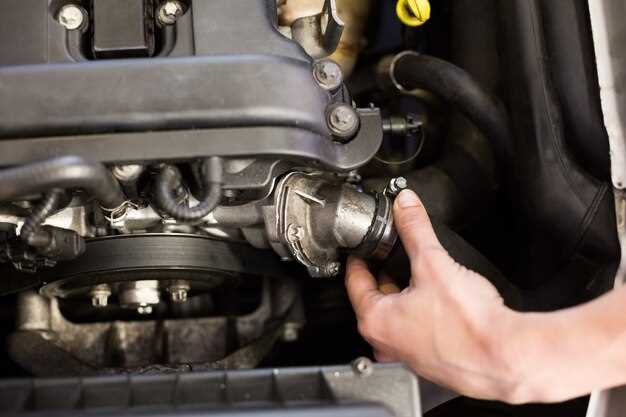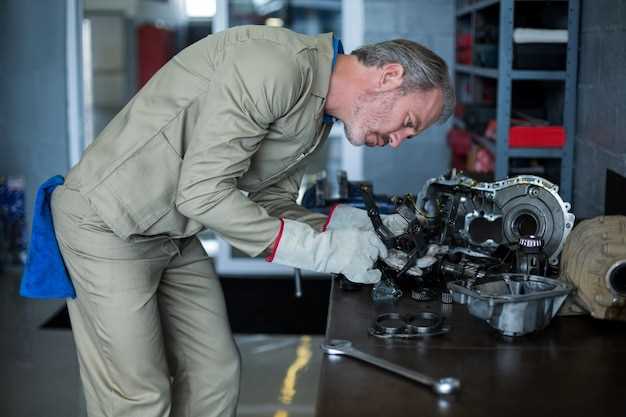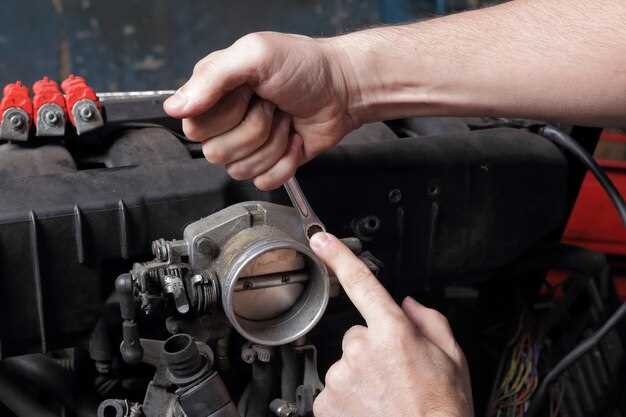

The turbocharger is a crucial component in a diesel engine, significantly enhancing its performance and efficiency. However, like any mechanical part, a turbocharger is subject to wear and tear over time. Recognizing the early signs of failure can save you from expensive repairs and prolonged downtime, making it essential for diesel vehicle owners to stay informed.
Several indicators may suggest that your turbocharger is on the verge of failure. If you notice a decrease in engine performance, increased fuel consumption, or unusual noises coming from the engine bay, these could be early signs that your turbo is struggling. Additionally, visual inspections can reveal oil leaks or excessive play in the turbo shaft, both of which are red flags you shouldn’t ignore.
Understanding these warning signs can equip you with the knowledge to identify when your diesel turbocharger requires replacement. By staying vigilant and proactive, you can ensure the longevity of your engine and maintain optimal driving performance.
Identifying Unusual Noises from Your Turbocharger
One of the first indicators of potential failure in your turbocharger is the presence of unusual noises. A well-functioning turbo should operate quietly and efficiently, without any disruptive sounds. When you notice an unfamiliar noise, it can be a critical signal that something is wrong.
Whining or whistling sounds may be an indication that the turbocharger is experiencing issues such as bearing wear or turbine imbalance. These noises often become more pronounced at higher RPMs and can signify a need for further investigation.
Hissing noises might suggest a boost leak in the system, indicating that compressed air is escaping before it reaches the engine. This can not only affect performance but also lead to additional stress on the turbo, further risking failure.
Grinding or rattling sounds should never be ignored. These noises can be signs of severe issues, including damaged internal components or a failing bearing. If left unaddressed, these problems can result in complete turbocharger failure, necessitating a costly replacement.
Finally, if you hear clattering or knocking sounds, it may be due to foreign debris caught within the turbocharger. This can directly impact its performance and longevity. Immediate action is recommended to prevent further damage.
In summary, being attentive to the noises produced by your turbocharger is essential. If you notice anything out of the ordinary, it’s advisable to have your system inspected by a professional to avoid the costly repercussions of a turbo failure.
Monitoring Signs of Decreased Engine Performance

Diesel engines are known for their robustness and efficiency, but a decrease in performance can indicate potential issues, particularly with the turbocharger. One of the most noticeable signs of trouble is a reduction in power. If your vehicle struggles to accelerate or doesn’t reach its usual speeds, it may be a sign of turbocharger failure or other underlying problems.
Another critical aspect to monitor is fuel efficiency. A sudden drop in miles per gallon may suggest that the engine is working harder to compensate for inadequate turbocharging. This inefficiency can lead to increased fuel consumption, affecting overall performance and your wallet.
Additionally, pay attention to abnormal noises from the engine bay. Whining, grinding, or hissing sounds can signify that the turbocharger is failing or experiencing typical wear and tear. Such sounds often indicate that the turbo is not boosting properly, which directly impacts engine power.
Exhaust smoke is another indicator to watch. Diesel engines normally produce some exhaust, but an increase in black or blue smoke suggests incomplete combustion or oil burning, potentially linked to turbocharger issues. This symptom often signals that the turbo might be allowing oil to enter the combustion chamber, leading to engine damage if not addressed promptly.
Lastly, monitoring boost pressure can provide valuable insights into your engine’s performance. A noticeable drop in boost levels during operation indicates that the turbocharger may not be functioning effectively. Tools like boost gauges can help in assessing this, ensuring timely detection of potential failures.
Checking for Excessive Exhaust Smoke and Oil Leaks

One of the critical indicators of a failing turbocharger is the presence of excessive exhaust smoke. This can manifest as blue, black, or white smoke emanating from the exhaust pipe. Blue smoke typically indicates that engine oil is being burned, which can result from a turbo failure where oil is leaking into the intake or exhaust systems. This not only affects performance but can also lead to more severe engine damage if left unchecked.
Black smoke, on the other hand, usually suggests that the engine is burning too much fuel. While this may not be solely a turbocharger issue, a malfunctioning turbo can lead to an improper air-fuel mixture, resulting in increased black smoke. White smoke often points to coolant entering the combustion chamber, which can occur if the turbo is compromised and allowing coolant to leak.
In addition to exhaust smoke, checking for oil leaks around the turbocharger is crucial. Look for any signs of oil seeping from the turbo unit or the connections. Oil leaks can indicate that the seals within the turbo are failing, which can drastically impact its performance. If there are visible oil spots underneath your vehicle or a noticeable oil residue on the turbo itself, this may be a warning sign of impending failure.
Regular monitoring of both exhaust smoke and oil leaks is essential for maintaining the health of your diesel turbocharger. Addressing these issues promptly can help prevent further damage and costly repairs down the line.







